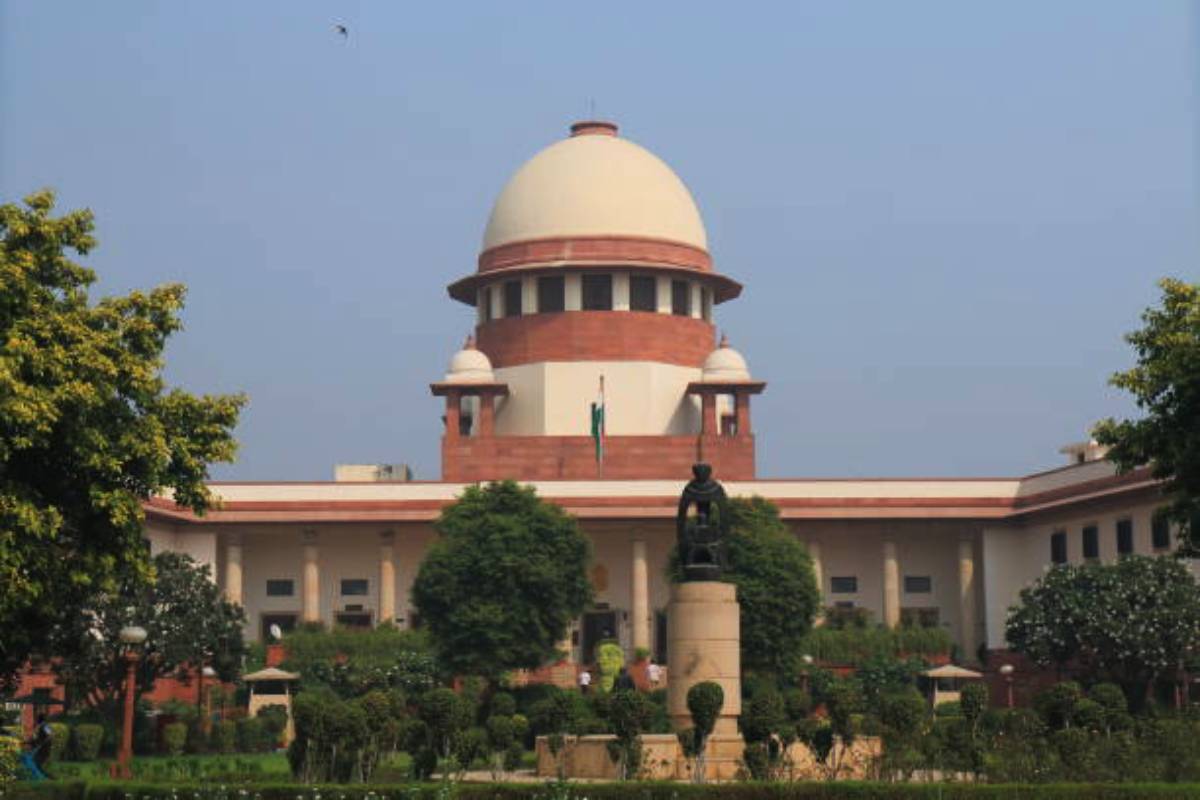Gaza ceasefire, hostage release to begin from Friday, says Qatar
According to Qatari officials, a pause in fighting will begin at 7am local time on Friday.
Chief Justice DY Chandrachud said that it was beyond its jurisdiction to direct the government of India not export materials to any country, as it was a matter which was completely within the domain of foreign policy.

Supreme Court of India
The Supreme Court on Monday dismissed a public interest plea, seeking direction to the Central government to cancel any existing licences and halt the grant of new licences/permissions, to various companies in India, for the export of arms and other military equipment to Israel, during 11-month long Israel-Palestine conflict in Gaza.
Heading a bench also comprising Justice JB Pardiwala and Justice Manoj Misra, Chief Justice DY Chandrachud said that it was beyond its jurisdiction to direct the government of India not export materials to any country, as it was a matter which was completely within the domain of foreign policy.
Advertisement
Stating that it cannot interfere with the national policy and the decisions taken by the government of India, the bench said that to grant the reliefs sought by the petitioners, the court will have to enter into the findings on the allegations raised against Israel, which is an independent sovereign nation, which is not subject to the jurisdiction of the Indian courts.
Advertisement
“How can the court adopt this kind of jurisdiction? We can’t tell the government that you shall not export to a particular country or cancel the licenses of companies exporting arms to that country. It is a matter of foreign policy which is to be handled by the government. How can the court tell the government that there should not be exports of arms to a country? Where does the court get that sort of power? National self-interest has to be evaluated by the government,” the bench told advocate Prashant Bhushan who was representing petitioners led by retired civil servant Ashok Kumar Sharma.
Bhushan told the bench that Israel is committing genocide in Gaza and India cannot allow exports which are used for genocide. He further said that allowing exports which are used in Gaza would amount to abetting genocide and India is a signatory of Convention on the Prevention and Punishment of the Crime of Genocide and has ratified it.
Referring to ingoing Russia-Ukraine, Chief Justice Chandrachud in a hypothetical example asked advocate Prashant Bhushan can the court direct the government to stop the import of oil from Russia. CJI said that it’s a matter of energy needs, conduct of foreign policy of India.
“See Bangladesh too, there are disturbances there. What should be the degree of economic engagement with that country, it is a matter of foreign policy. See our conflict with Maldives, when the new government came there, they asked to remove our military personnel, but can we then ask tourists from India to stop going there? Can we then ask the government to stop investments there?” the bench said elaborating on its position.
On September 4, a former civil servant Ashok Kumar Sharma and 11 others had moved the top court seeking direction to the Central government to cancel any existing licences and halt the grant of new licences/permissions, to various companies in India, for export of arms and other military equipment to Israel, during war in Gaza, which is in violation India’s obligations under international law coupled with Articles 14 (Equality before law) and 21 (Right to life) read with 51(c) of the Constitution of India.
The petitioners had referred to the January 26, 2024, decision of the International Court of Justice (ICJ) which had ordered provisional measures against Israel for violations in the Gaza Strip of obligations under the Convention on the Prevention and Punishment of the Crime of Genocide. They had said that the provisional measures include immediate halt to all killings and destruction that is being perpetrated by Israel on the Palestinian people.
The PIL petitioners had also referred to the ICJ’s detailed judgment of July 19, 2024, speaking on the Legal Consequences arising from policies and practices of Israel in the occupied Palestinian territory including East Jerusalem.
Stating that India is obligated under the Genocide Convention – which India has signed and ratified – to take all measures within its power to prevent genocide, the PIL had said that India thus cannot export any military equipment or weapons to Israel when there is a serious risk that these weapons might be used to commit war crimes.
Advertisement